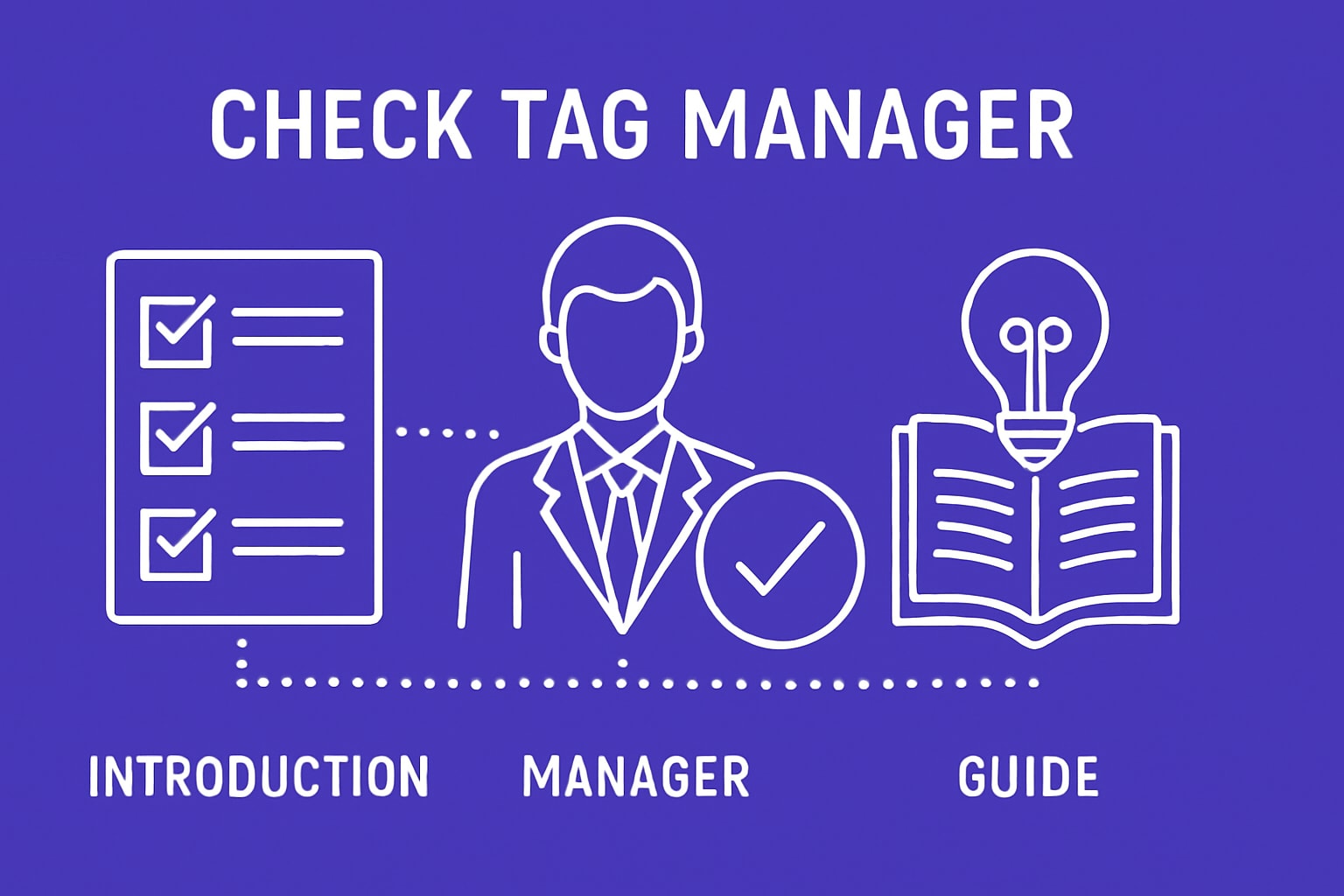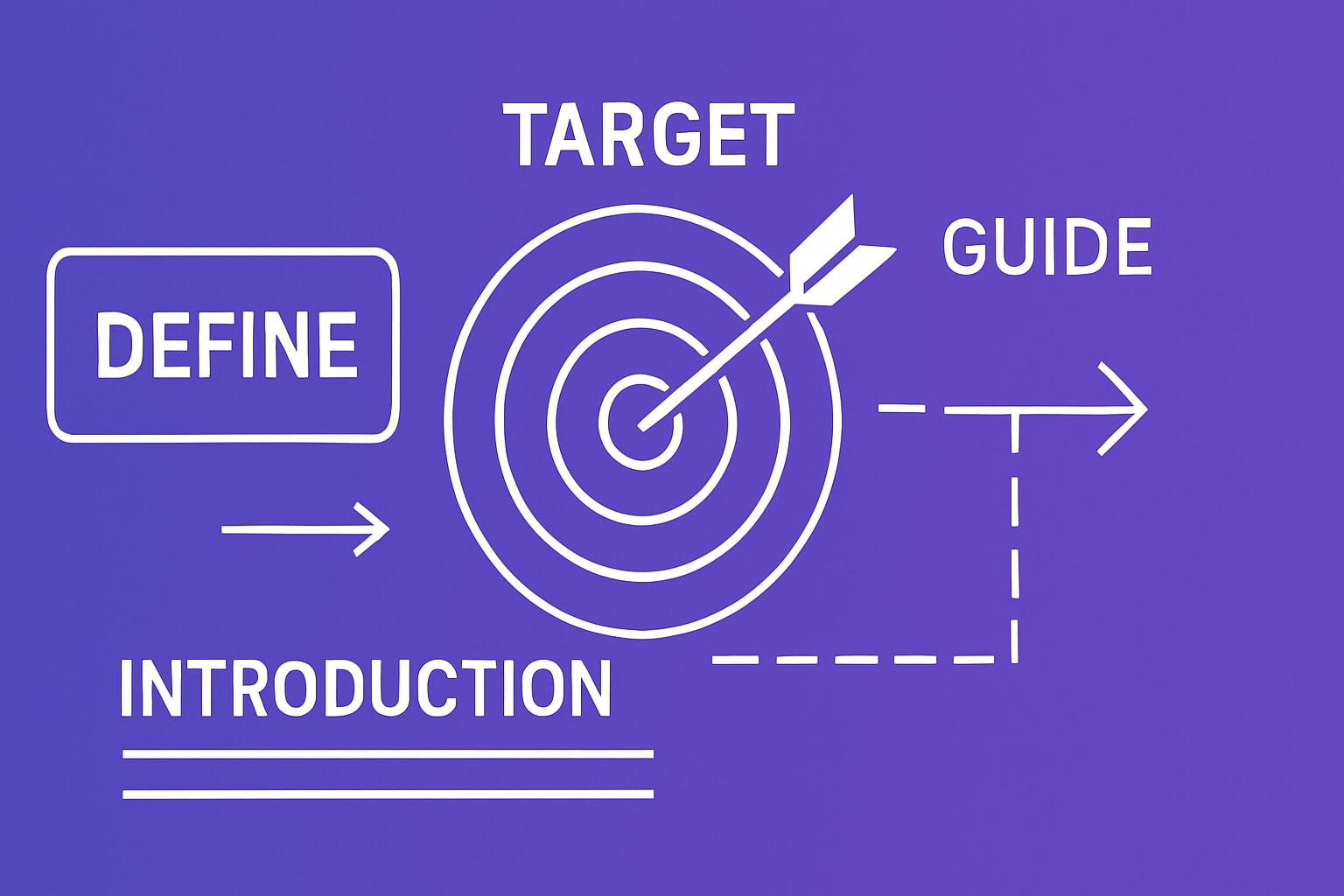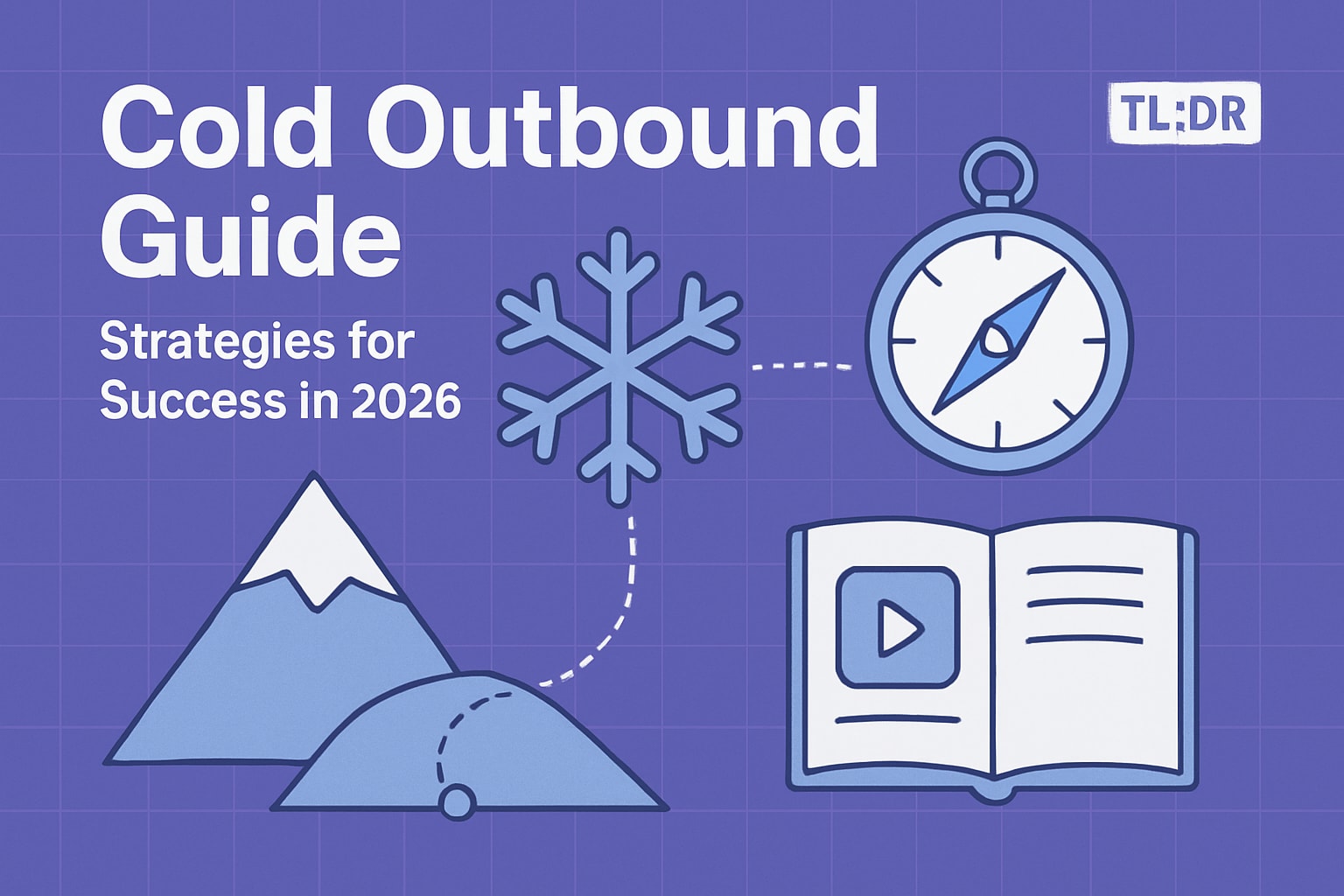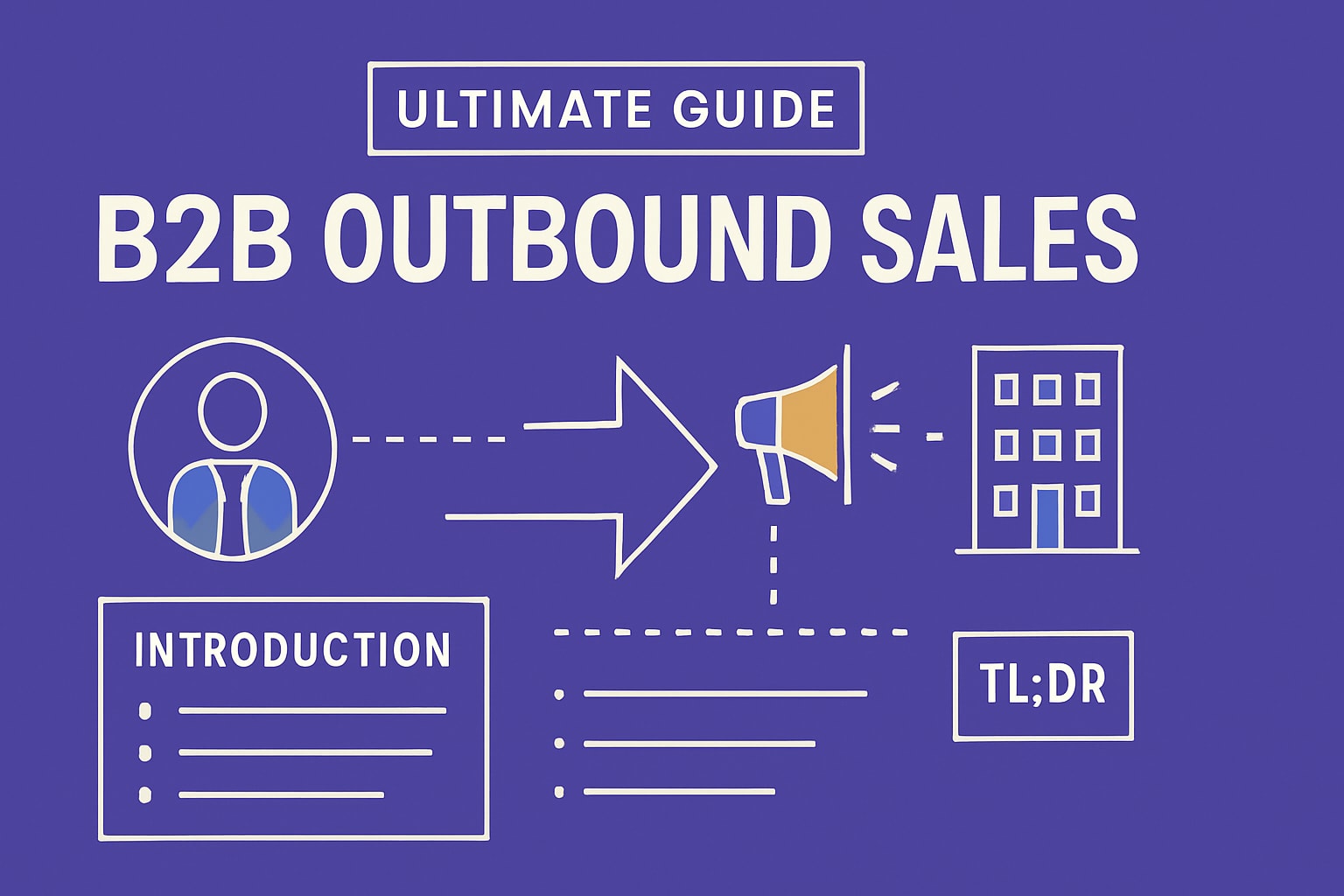Planning your next trip for 2025? The way you book through travel platforms or directly with hotels can shape your entire experience. With so many options available, choosing how to book through the right channel is more complex than ever.
Hidden savings, exclusive perks, or costly mistakes all hinge on your decision. This guide will break down the pros and cons of each booking method. We will compare pricing, flexibility, customer service, loyalty rewards, and security using real-world examples and the latest trends.
Ready to make the smartest choice? As you read, think about your own priorities and how they align with the best way to book through for your travels in 2025.
Understanding Booking Methods: Direct vs. Third-Party Platforms
Choosing between booking direct and using third-party platforms can shape your entire travel experience. Each method offers its own set of advantages and potential pitfalls. To make the best decision for your next trip, you need to understand how these booking approaches work and how the landscape is shifting for 2025.
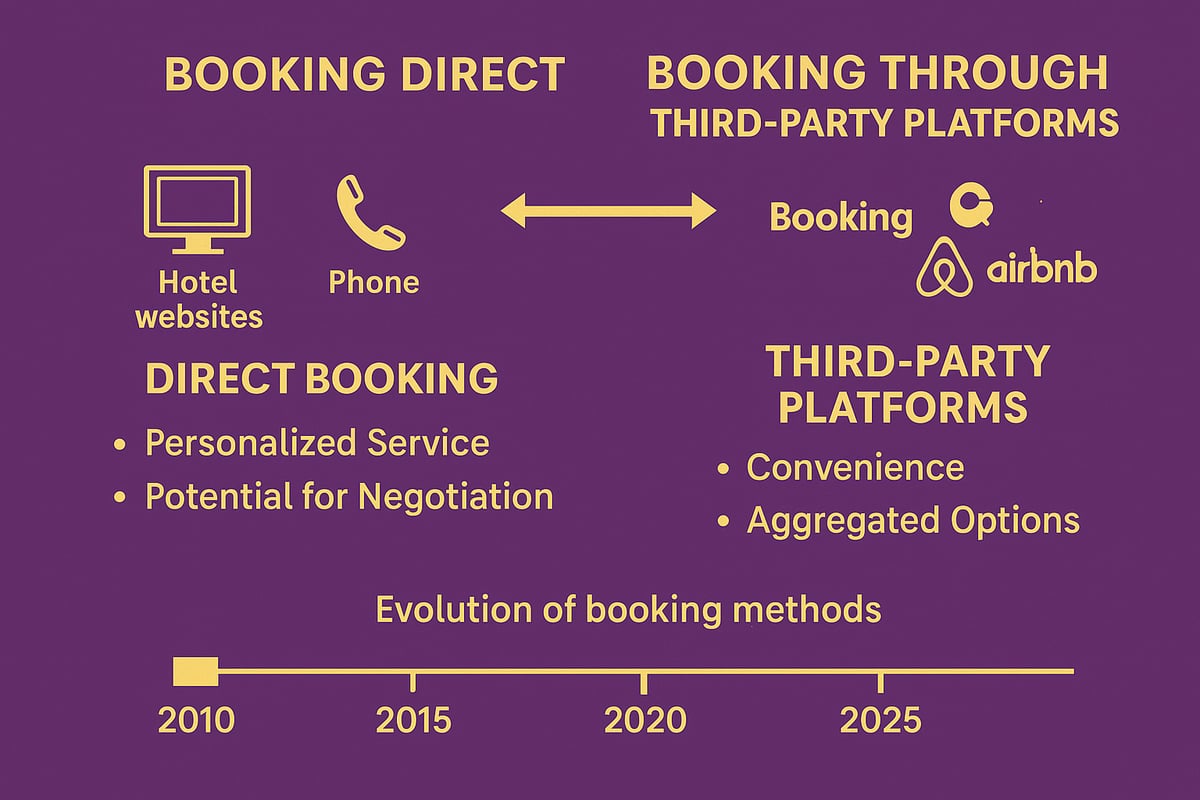
What Does "Booking Direct" Mean?
When you book direct, you reserve your accommodation by contacting the hotel or property owner without any intermediaries. This usually happens through the hotel’s official website, a phone call, or even an email. Many boutique hotels, B&Bs, and family-run inns, especially in places like Germany or rural Italy, prefer guests to book direct since it avoids third-party commissions.
Booking direct often creates opportunities for personal interaction. You can ask questions, clarify details, and sometimes negotiate extras like room upgrades or flexible check-in times. Smaller properties with limited technology often rely on this approach, making guests feel valued and heard.
If you’re looking for a unique or intimate stay, booking direct can open doors to special packages or unlisted rooms. However, it’s important to compare before deciding whether to book through a direct channel or another method.
What Does "Booking Through" Mean?
To book through a third-party platform means using an Online Travel Agency (OTA) such as Booking.com, Expedia, or Airbnb. These platforms aggregate thousands of properties, giving travelers the ability to compare prices, read verified reviews, and manage all reservations in one place. For example, Booking.com covers global hotel chains and independents, while Airbnb focuses on unique homes and local experiences.
The main advantage when you book through an OTA is convenience. You see all your options, amenities, and availability instantly. OTAs simplify the search process with filters, maps, and customer support. For travelers who value speed and choice, to book through an established platform can save time and reduce stress.
Some properties only allow you to book through their chosen platform, especially exclusive rentals or those with limited web presence. Always weigh the pros and cons before you book through any third party.
How the Landscape is Evolving for 2025
The way travelers book through different channels is rapidly changing as technology advances. More hotels and small properties are investing in user-friendly direct booking tools, making it easier than ever to reserve a room straight from their website. At the same time, OTAs are expanding perks, offering more flexible cancellations, and enhancing loyalty programs to keep travelers booking through their platforms.
Recent data shows a rise in direct bookings since the pandemic, but OTAs still dominate for sheer volume and global reach. Some properties are available only if you book through their own site, while others appear solely on OTAs. For up-to-date insights and statistics on how these trends are shaping the global market, see the Global Hotel Booking Market Insights 2025.
As 2025 approaches, travelers need to choose whether to book through direct channels or trusted platforms, always considering their own priorities and travel style.
Pricing and Value: Where Are the Real Savings?
Travelers looking to maximize their budget in 2025 face a critical decision: should you book through a third-party platform or go direct to the hotel or property owner? The answer is not always straightforward, as pricing models, hidden fees, flexibility, and exclusive deals all play a role. Let’s break down where the real savings are hiding, and how to ensure you get the best value for your next trip.

Comparing Prices: Direct vs. Third-Party
When you book through an online travel agency (OTA), such as Booking.com or Expedia, the platform typically charges hotels a commission, usually ranging from 15 to 20 percent. Hotels sometimes pass these costs to guests, resulting in higher prices compared to booking direct. In response, many hotels offer incentives for direct bookers, like a 10 to 20 percent discount or complimentary upgrades. For example, a hotel manager might offer a lower rate or free breakfast if you call directly, while exclusive package deals are often only found on the hotel’s own site.
However, OTAs occasionally undercut direct prices with flash sales or bundled deals, so it pays to compare. According to recent Hotel Price Parity Trends in 2025, price differences between channels continue to fluctuate, with OTAs and hotels both vying for the best offers. In short, always check both options before you book through any channel.
| Factor | Book Direct | Book Through OTA |
|---|---|---|
| Base Price | Sometimes lower | Sometimes lower |
| Upgrades | Often available | Rare |
| Package Deals | Hotel site exclusive | OTA exclusive deals |
| Loyalty Points | Usually awarded | Seldom awarded |
Hidden Fees and Transparency
One of the biggest frustrations for travelers is unexpected fees. OTAs frequently display all mandatory charges, taxes, and deposits upfront, making it easier to see the total cost before you book through their platform. Direct booking sites, however, may reveal additional fees later in the process or at check-in, which can lead to unpleasant surprises.
For instance, Booking.com tends to show all rental fees and deposits clearly, while some hotels might only mention a security deposit after you arrive. Regional practices also matter: in New Zealand, for example, forums highlight that OTAs often provide more transparent pricing than smaller, direct-booking properties. Always review the final price breakdown before you book through any method to avoid hidden costs.
Negotiation and Flexibility
A significant benefit when you book through a hotel directly is the opportunity for negotiation. Smaller hotels and B&Bs are often willing to throw in perks, like free breakfast, room upgrades, or even flexible check-in and check-out times. Large hotel chains are less likely to negotiate, but it never hurts to ask.
Some travelers have secured upgrades, complimentary drinks, or even airport transfers by simply reaching out before they book through the hotel’s own site. OTAs, by contrast, offer limited room for negotiation, as all terms are pre-set within the platform. If flexibility and a personal touch matter to you, booking direct is often the way to go.
When OTAs are Cheaper
Despite all the perks of booking direct, there are times when OTAs offer the lowest rates. Some properties engage in price undercutting, especially during special promotions or to attract new customers to their listing. For example, an Egyptian resort might have a lower rate if you book through an OTA app rather than extending your stay directly. Many OTAs also reward frequent users with loyalty discounts, which can make a significant difference for regular travelers.
It’s wise to compare prices before you book through any channel and consider your travel patterns. If you travel often, direct booking perks and loyalty points may add up. For occasional trips, the convenience and discounts of OTAs can be more valuable, especially if you score a flash sale.
Flexibility, Cancellation, and Booking Security
When planning your 2025 travels, understanding how you book through different channels can significantly affect your flexibility, cancellation options, and security. Both direct bookings and OTAs offer unique advantages, but the right choice depends on your priorities and travel style.
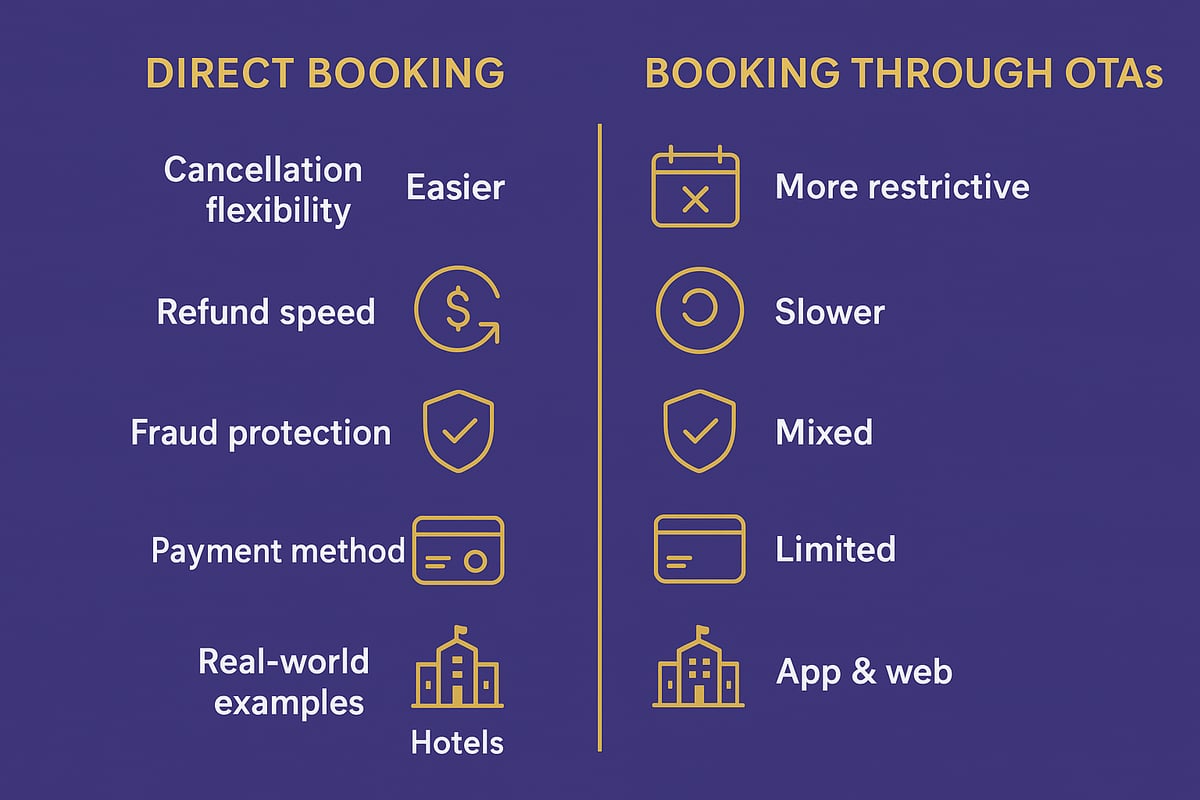
Cancellation Policies and Flexibility
Cancellation policies can make or break a travel plan. When you book through an OTA, you often gain access to flexible cancellation terms, sometimes allowing changes or refunds up to the day before arrival. This flexibility is a major draw for travelers who value peace of mind.
Direct bookings, on the other hand, may come with stricter cancellation rules. However, booking direct can open the door to negotiation. Some hotels may offer custom solutions if you contact them—think of a complimentary date change or partial refund.
Here's a quick comparison:
| Feature | Book Through OTA | Direct Booking |
|---|---|---|
| Cancellation Ease | Often high, free | Varies, may be strict |
| Refund Speed | Platform handles | Hotel’s policy |
| Negotiation | Limited | Possible |
Remember, flexibility often comes at a premium price. Always weigh the cost of a flexible rate when you book through any channel.
Booking Security and Fraud Protection
Security is a top concern for modern travelers. When you book through a reputable OTA, you benefit from an extra layer of protection. These platforms act as intermediaries, helping resolve disputes and shielding you from fraudulent listings. For example, Booking.com’s guarantee can offer recourse if your accommodation falls short or doesn’t exist.
Booking direct means handling disputes with the property yourself. While most hotels are trustworthy, there’s a higher risk if you are asked to pay outside secure channels. Always confirm payment methods and avoid sending money via wire transfer unless you trust the source.
For a deeper look at how digital platforms are shaping security and distribution, see Hotel Distribution Dynamics in 2025.
Payment Methods and Deposits
How you pay can affect your experience, especially when you book through different channels. OTAs usually accept credit cards, digital wallets, and even local payment apps, processing transactions securely. This variety helps international travelers avoid hassles.
Direct bookings sometimes require traditional methods, like cash on arrival or even wire transfers. Some properties may also ask for a local currency deposit, which can be inconvenient if you’re not prepared.
- OTAs: Credit cards, digital wallets, secure payment systems
- Direct: Cash, wire transfers, local deposits
Always check payment terms before you book through any method to avoid surprises.
Real-World Case Studies
Travel forums are full of stories that highlight the pros and cons when you book through either channel. Some travelers report seamless cancellations and refunds when using Booking.com, especially for last-minute changes. Others have encountered fraudulent listings, but were protected by the OTA’s dispute process.
Direct bookers sometimes enjoy perks like free upgrades or late check-out, but may struggle if an issue arises and the hotel is unresponsive. One traveler shared how a required cash deposit on arrival nearly derailed their trip.
Regardless of how you book through or direct, always read the fine print, confirm details, and keep communication records for peace of mind.
Perks, Loyalty Programs, and Rewards
When you book through any platform, perks and rewards can tip the scales on where you find the most value. In 2025, understanding how loyalty programs and exclusive offers work is crucial for maximizing your travel experience.
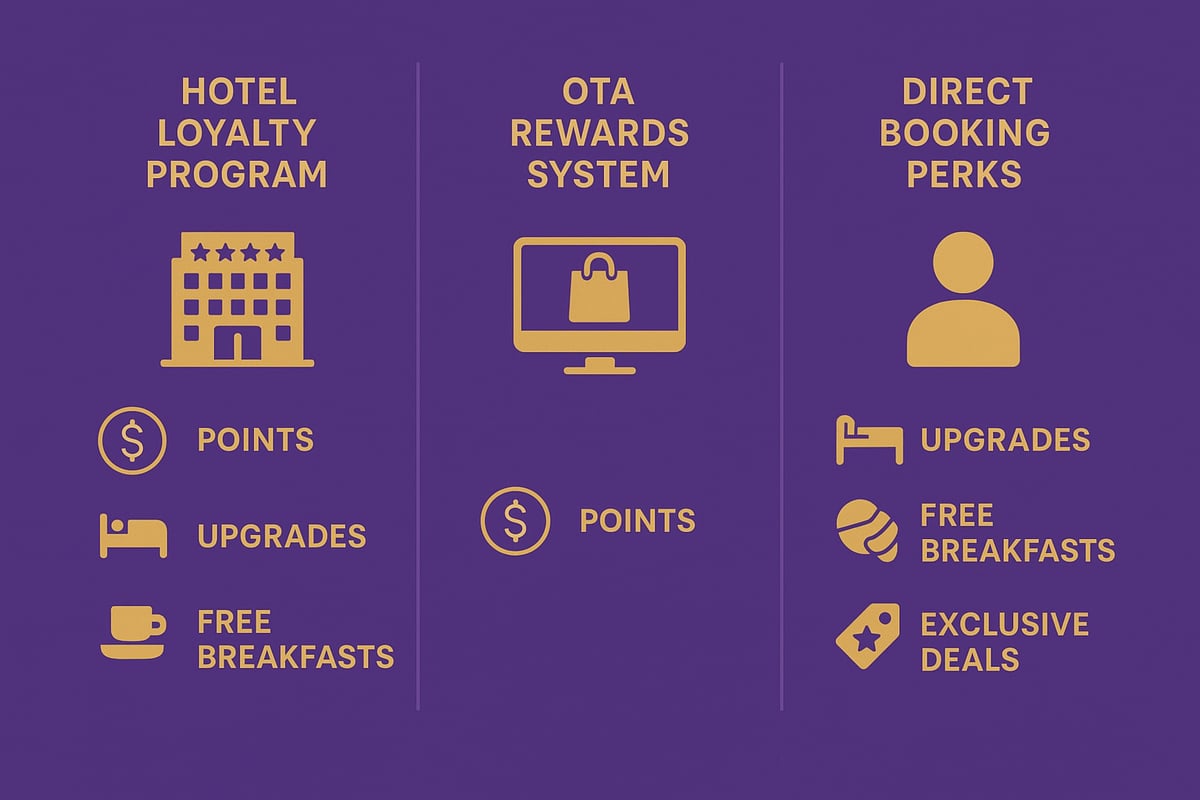
Hotel Loyalty Programs
Booking direct with a hotel chain often unlocks their loyalty programs, which can lead to significant benefits over time. When you book through a hotel’s website or app, you usually earn points towards free nights, upgrades, or elite status. Major brands like Marriott, Hilton, and Hyatt restrict these perks to direct bookings only.
In 2024 and 2025, some airlines and hotels have tightened their rules, refusing to award points if you book through third-party sites. For frequent travelers, this shift means booking direct is the only way to access the full range of loyalty rewards. If you value elite perks like late checkout or room upgrades, always check the fine print before you book through another channel.
OTA Rewards Systems
Online Travel Agencies continue to innovate, offering their own rewards when you book through their platforms. Programs like Booking.com Genius and Expedia Rewards provide instant discounts, free breakfasts, or late check-out to loyal users. Unlike hotel programs, these perks apply across many brands and properties.
OTAs are also stepping up their game as they shape the future of hotel distribution and online visibility. For more analysis on how OTAs are influencing perks and pricing, see OTAs' Impact on Hotel Distribution in 2025. If you regularly book through an OTA, these rewards can add up quickly, especially if you prefer flexibility over brand loyalty.
Exclusive Offers for Direct Bookers
Properties often reserve their best extras for guests who book through their own channels. Direct bookers may receive complimentary wine, airport transfers, or meal packages not advertised elsewhere. Small hotels and boutique inns are especially likely to provide these touches, hoping to build loyalty and positive reviews.
If you call or email a property before you book through any platform, you might even negotiate a better deal. Some travelers report free breakfasts, welcome gifts, or room upgrades just for booking direct. Always ask if there are hidden perks for skipping the middleman.
Weighing Value: Which Is Best for You?
Choosing how to book through depends on your own travel habits and priorities. Frequent travelers might find that hotel loyalty points and elite benefits outweigh OTA discounts. Occasional travelers or those seeking unique stays could see more value from OTA perks and flexibility.
Here’s a quick comparison:
| Perk Type | Book Direct | Book Through OTA |
|---|---|---|
| Loyalty Points | Yes (chains only) | Rare |
| Instant Discounts | Sometimes | Often |
| Upgrades | Often | Sometimes (elite only) |
| Special Packages | Yes | Rare |
| Flexibility | Negotiable | Standardized |
By carefully weighing these options before you book through any channel, you can maximize both rewards and peace of mind for your 2025 travels.
Customer Service, Communication, and Problem Resolution
When you book through different channels, your customer service experience can vary widely. Whether you choose to book through an OTA or go direct, how problems are solved and how you communicate with your host can shape your entire trip. Let’s break down what to expect from each method.
Customer Service Channels
Choosing to book through an OTA or direct changes your support options. Direct booking puts you in immediate contact with hotel staff. You can call, email, or speak face-to-face at check-in, often getting help on the spot.
When you book through an OTA, customer service is handled by the platform. This means you’ll usually contact support through chat, email, or a help center. The platform acts as a middleman, which can bring both benefits and delays.
- Direct booking: direct access to managers, faster response.
- Book through OTA: support tickets, standardized responses, escalation process.
Some travelers prefer the direct approach for quick resolutions, while others value the structured support OTAs provide.
Problem Resolution: Speed and Effectiveness
Resolving issues depends on how you book through your chosen channel. With direct booking, staff can address problems like room changes or late check-outs immediately. You’re more likely to get fast, face-to-face solutions.
If you book through an OTA, any dispute—such as overbooking or missing amenities—usually goes through the platform. OTAs can step in if the property is unresponsive, but this can take time. For example, Booking.com may offer refunds or alternative accommodations if a problem isn’t solved.
- Direct: on-site staff empowered to help.
- Book through: platform may mediate, but response can be slower.
Anecdotes from forums show both approaches have strengths, but knowing who to contact is key to quick resolution.
Communication During the Stay
How you communicate during your stay also depends on whether you book through an OTA or direct. Direct booking often leads to a more personal experience. Staff may greet you by name or customize your stay based on your preferences.
When you book through a platform, communication tools like in-app messaging are common. These are convenient, but may limit pre-arrival contact. Some OTAs restrict direct email or phone sharing until just before check-in.
- Direct: personalized greetings, flexible arrangements.
- Book through: centralized chat, templates, sometimes delayed responses.
Travelers who value a personal touch may prefer direct booking, while those who want everything managed in one app often book through an OTA.
Language and Cultural Considerations
Language and cultural barriers can influence your choice to book through a particular channel. Direct booking may require communicating in the local language or dealing with time zone differences. This can be challenging for some travelers.
OTAs help bridge these gaps with translation features and standardized forms. These tools make it easier to communicate requests or solve issues, no matter where you are. Leveraging technology is key for efficient communication, as explored in Maximizing efficiency with tools and tech.
- Direct: possible language barriers, cultural nuances.
- Book through: built-in translation, support in multiple languages.
Understanding these differences helps you choose the best way to book through for your travel style and needs.
Availability, Selection, and Search Experience
Finding the perfect place to stay for your next trip can feel overwhelming with so many options. When you book through an online travel agency like Booking.com or Airbnb, you unlock a massive database of properties worldwide. This approach makes it easy to compare prices, check availability, and filter results based on your preferences.
OTA Advantages: Range and Discovery
When you book through an OTA, you get access to thousands of hotels, apartments, and unique stays at your fingertips. These platforms aggregate listings from all over the world, making it simple to discover properties you might never find otherwise.
You can use advanced filters to sort by price, amenities, and guest ratings. Map-based search lets you pinpoint locations near attractions, transit, or business centers. With so many choices, you can book through a single platform and manage all your reservations in one place.
Many travelers rely on OTAs for their ability to surface hidden gems and limited-time deals. As booking technology evolves, these platforms offer even more personalized suggestions, reflecting broader industry shifts. For a deeper dive into how technology is shaping booking behaviors, see The future of outbound sales trends.
Direct Booking Limitations and Advantages
Not every property is listed on an OTA. Many small guesthouses, rural inns, or boutique hotels prefer to manage reservations themselves. When you book through direct channels, such as a hotel website or by phone, you may find properties that are unavailable elsewhere.
Direct booking sometimes reveals lower prices or special packages, especially in regions where local tourism boards promote their own listings. For instance, a small village in Germany might list more lodging options on its official site than any OTA. Savvy travelers often book through direct contact to access these hidden deals.
Review Systems and Trust
One of the main advantages when you book through an OTA is the reliability of guest reviews. Most platforms only allow verified guests to leave feedback, which helps ensure authenticity. You can read hundreds of recent reviews to gauge what to expect.
Direct booking sites may have fewer reviews, or they might not verify whether a reviewer actually stayed at the property. This makes it harder to trust the feedback. For peace of mind, many travelers choose to book through a platform with a strong review system.
Hybrid Approach: Research on OTAs, Book Direct
Many experienced travelers use a hybrid strategy: they book through OTAs for research, then reach out to the property directly for the best price or extra perks. By cross-referencing listings on sites like TripAdvisor, Booking.com, and the hotel’s own website, you can compare offers and make an informed decision.
This approach lets you match the convenience and breadth of OTAs with the potential for exclusive deals when you book through direct channels. It’s a smart way to maximize value without missing out on unique stays or special packages.
Limitations of Both Methods
Despite the advantages, both booking methods have limits. Some small properties lack an online presence altogether, requiring you to call or email directly. Not all room types or special packages appear when you book through OTAs, so you might miss out on exclusive offers.
On the flip side, direct booking websites can be outdated or lack secure payment options. No matter how you book through, always double-check the details and confirm your reservation for a smooth travel experience.
Key Considerations for 2025: Trends, Technology, and Traveler Profiles
Travel booking in 2025 is evolving fast, and the choice to book through a third-party or directly with a property is more nuanced than ever. Travelers are facing new trends, smarter technology, and shifting loyalty programs, making the decision process complex yet full of potential rewards.
Emerging Trends in Booking Behavior
The way people book through different channels is changing rapidly. In 2025, hotels are investing heavily in user-friendly direct booking tools, making it easier for guests to bypass OTAs. At the same time, OTAs are rolling out more flexible policies and unique perks to retain their market share. Post-pandemic data shows a steady increase in direct bookings, but OTAs continue to dominate for international and multi-property trips. Some properties remain exclusive to either OTAs or direct channels, so using both options is often essential for thorough trip planning.
Technology’s Role in the Booking Experience
Technology is a game-changer in today’s booking landscape. AI-driven recommendations, dynamic pricing, and instant mobile notifications help travelers snag the best deals whether they book through OTAs or directly. Mobile apps streamline the booking journey, offering digital wallets and one-tap confirmations. These advances are pushing both OTAs and hotels to innovate and personalize offers. For those looking to make strategic decisions and maximize value, adopting effective strategies for enhancing performance in booking can provide a real edge.
Traveler Profiles: Who Should Book Direct? Who Should Use OTAs?
Not every traveler benefits equally from each method. Frequent business travelers may find more value when they book through direct channels, as loyalty points and elite perks often require it. Leisure travelers, especially families or groups, might prefer the simplicity and bundled offers OTAs provide. Meanwhile, solo adventurers or digital nomads could benefit from the flexibility and variety OTAs offer. Use the table below to match traveler types to the best booking method:
| Traveler Type | Best to Book Through | Why? |
|---|---|---|
| Business | Direct | Loyalty points, flexible changes |
| Leisure/Family | OTA | Bundles, reviews, convenience |
| Solo/Adventurer | OTA or Direct | Flexibility, unique stays |
Regional and Seasonal Differences
Where and when you travel influences how you book through different channels. In Europe, many rural inns and B&Bs only accept direct bookings, especially in high season when demand is high. In contrast, in North America or Asia, OTAs often list the widest range of properties. During low season, direct bookings might unlock exclusive discounts not found on OTAs. Always compare both options, as the best value can shift depending on your destination and travel dates.
Final Checklist: How to Decide for Your Next Trip
Ready to make your decision? Use this quick checklist before you book through any channel:
- Compare prices and perks on multiple sites.
- Read cancellation and refund policies closely.
- Verify guest reviews and property authenticity.
- Contact the property for unpublished deals or questions.
- Weigh loyalty rewards versus upfront discounts.
By following these steps, you can confidently choose the booking method that fits your 2025 travel style and priorities.


